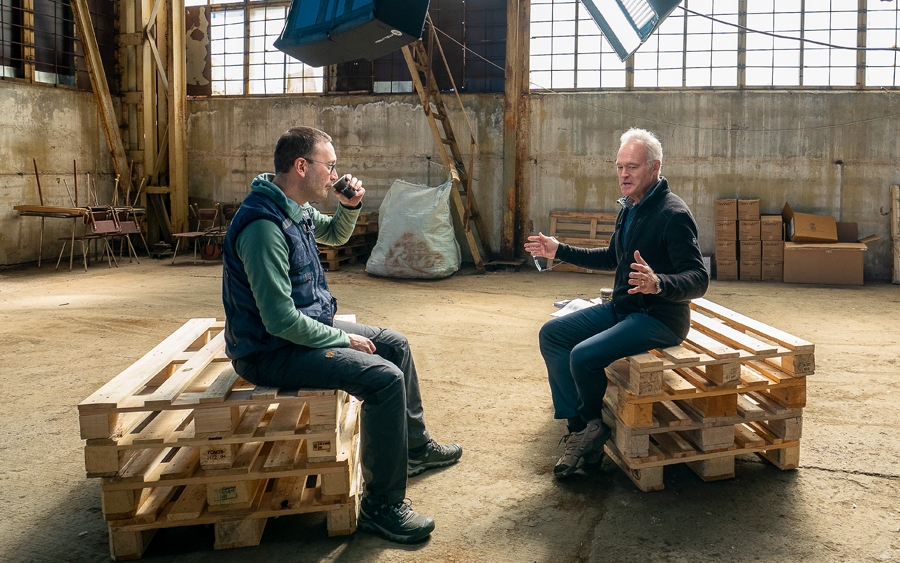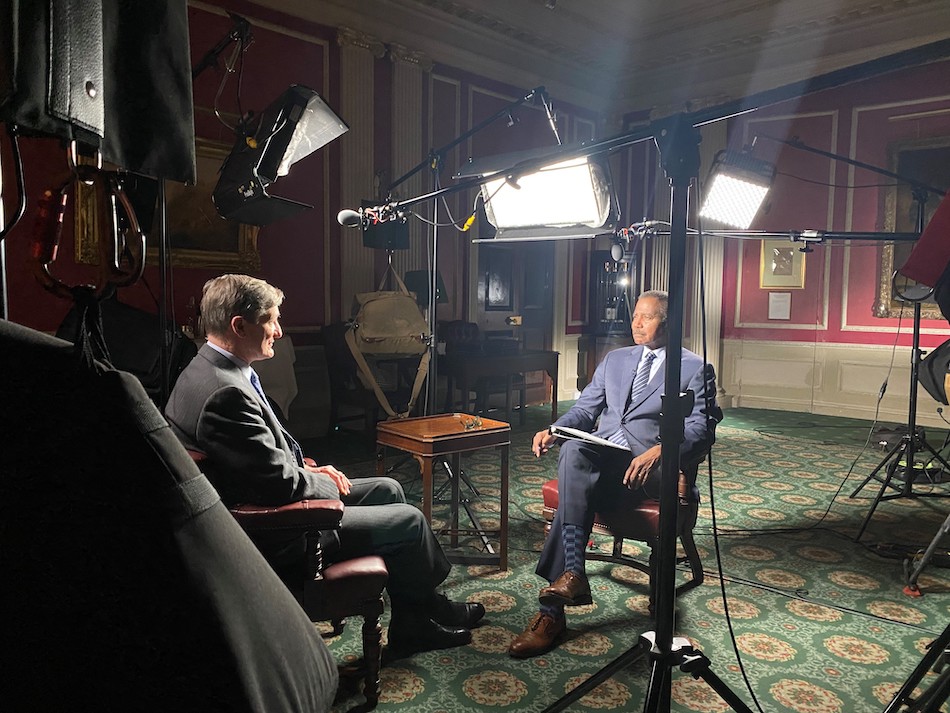Scott Pelley, Bill Whitaker Weigh in on Ukraine
‘60 Minutes’ correspondents share about stories they unearthed related to Russian invasion

The smarter way to stay on top of broadcasting and cable industry. Sign up below
You are now subscribed
Your newsletter sign-up was successful
Scott Pelley shared about his experience in Ukraine, where he embedded with the International Medical Corps (IMC), which delivers medical supplies and other resources into the embattled country. Pelley reported from Lviv, Ukraine in the episode of 60 Minutes that aired on CBS April 3. He spoke of “a defiant people, braving airstrikes, rushing in medical supplies and sheltering the innocent.”
Pelley spoke with B+C from his base across the Ukraine-Poland border in Krakow. He mentioned Putin and the Russian army transgressing “the original war crime” when the Geneva Conventions were compiled. “The Russians are methodically destroying hospitals,” he said. “That was literally the initial war crime when the Geneva Conventions were written, the original war crime. The Russians are just systematically destroying these hospitals.”
There were more than 70 attacks on hospitals, doctors and ambulances as of last week, according to the World Health Organization.
The IMC is operating out of an abandoned factory in Lviv that is filled with “tons and tons” of medical equipment, said Pelley, and helping get the gear and meds to those who need it desperately.
His 60 Minutes report “paints the picture of how dire the situation is for the Ukrainians, and how bravely they are facing up to the invasion,” said Pelley. “The Ukrainian people are incredibly brave and incredibly resilient.”
The 60 Minutes episode can be watched on Paramount Plus.
Asked about images that will stay with him after he departs the region, Pelley spoke of a woman at a refugee center. Sensing that Pelley and his crew, which includes producer Nicole Young and associate producer Kristen Steve, were Americans, she shared her thoughts on the invasion. “She said, the Russians are barbarians,” said Pelley. “They are killing our children. When you see a baby in a crib, and the baby is dead, what did the baby do? What is the fault of that child?”
The smarter way to stay on top of broadcasting and cable industry. Sign up below
Pelley described the woman as a person who had “heard one air-raid siren too many and was at her wit’s end. She just needed to scream at someone and release all that tragedy.”

The same episode of 60 Minutes saw Bill Whitaker in London, reporting on the Russian oligarchs living in the city and “propping up Putin’s regime.” His report, produced by Heather Abbott, is called “Londongrad.”
“For years, Britain actively courted Russian billionaires, ignoring reports that some of their wealth was suspect,” Whitaker said in his report. “Today there’s so much Russian cash in Britain, the capital has been nicknamed Londongrad.”
After the Soviet Union disbanded, Great Britain “rolled out the welcome mat” for the oligarchs, Whitaker told B+C, more than governments did in the U.S. or Switzerland or other locales the Russian billionaires relocated to. “London got the lions’ share of it,” he added.
Buying enormous homes in posh London neighborhoods, such as Belgravia, where Whitaker said Eaton Square is nicknamed Red Square, has been a way to launder dodgy money, he said.
Russians making giant investments in the U.K., of some £2 million or more, were put on a faster track to citizenship, said Whitaker. The initial thinking in the U.K. was, allowing these individuals, and their massive bank accounts, to move into the country would mean a major infusion for the country’s capitalist machinery, eventually benefiting the less-well-off residents.
Decades later, the government is rethinking its apparently lenient approach.
“Everybody in the west is starting to take a new look at the relationship between Putin and the oligarchs,” Whitaker told B+C. “Britain is a little slower to get moving.” ■
Michael Malone is content director at B+C and Multichannel News. He joined B+C in 2005 and has covered network programming, including entertainment, news and sports on broadcast, cable and streaming; and local broadcast television, including writing the "Local News Close-Up" market profiles. He also hosted the podcasts "Busted Pilot" and "Series Business." His journalism has also appeared in The New York Times, The L.A. Times, The Boston Globe and New York magazine.

